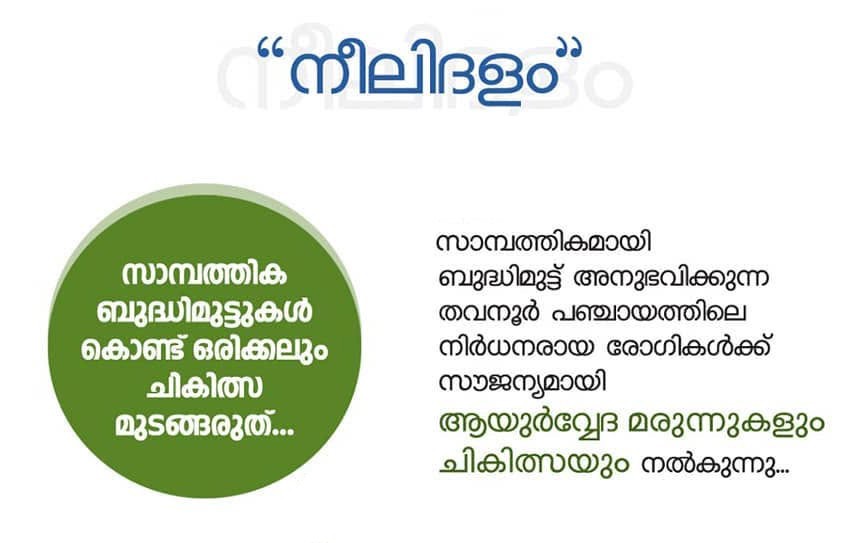Tinnitus is the sensation of hearing noises like ringing, buzzing or hissing when there’s no external sound. In simple terms, it feels like a persistent “ringing in the ears.” According to experts, about 10–25% of adults experience tinnitus. It can occur in one or both ears and may sound like a high-pitched whistle, a deep roar, a hiss, a buzz, or even a click. For many people, tinnitus comes and goes; for others it can be almost constant. Although it usually isn’t a sign of a serious illness, chronic tinnitus can make concentration, sleep and relaxation difficult.
Image: Close-up of a human ear illustrating tinnitus symptoms. Tinnitus often begins subtly – perhaps a faint ringing after a loud concert or a buzzing after a long workday with noisy machinery. For some, these sounds fade; for others they linger or grow louder over time. Common descriptions include ringing like a bell, humming like a fan, clicking, or even roaring like ocean waves. These phantom sounds can be soft or very loud, and may be constant or come and go. In severe cases they can be heard day and night, disrupting normal life and causing frustration.
Tinnitus can affect day-to-day life in many ways. People with persistent ringing often find it hard to focus or relax, and it may disturb sleep. Studies note that while most tinnitus is not dangerous, it can impact mood and sleep – some sufferers report irritability, anxiety or even depression when the ringing is relentless. Imagine trying to fall asleep with a constant high-pitched squeal in your ear, or struggling to concentrate on work while your ears buzz. These effects are why many seek relief once tinnitus becomes a chronic issue.
Common Causes of Tinnitus
Tinnitus is a symptom, not a disease itself, and it has many possible triggers. Common causes and aggravators include:
Noise exposure: Being around very loud sounds – like concerts, heavy machinery, or traffic – can damage the delicate inner ear structures. This can trigger tinnitus either immediately or years later.
Hearing loss: Age-related hearing loss (presbycusis) often goes hand-in-hand with tinnitus. Most people who have tinnitus also have some hearing loss. Noise-induced hearing loss can also start the ringing.
Ear infections or wax buildup: Blockage of the ear canal from earwax (cerumen) or fluid from an infection can “plug” the ear and create or worsen tinnitus.
Medications and chemicals: Some medicines (like high-dose aspirin, certain antibiotics, or chemotherapy drugs) and even too much caffeine or nicotine can spark tinnitus.
Physical factors: Jaw joint disorders (TMJ), head or neck injuries, and circulatory issues like high blood pressure or vascular turbulence near the ear can cause pulsing or constant tinnitus.
Stress and health: Strong emotional stress or fatigue doesn’t cause tinnitus, but it can make symptoms much worse. High stress levels can amplify the perception of ringing and make it harder to cope.
By understanding triggers – like avoiding loud noises or checking ear health – many people learn to manage or reduce their tinnitus over time. But when it persists, a more holistic approach can help ease the burden.
Living with Tinnitus: Daily Impact
Even mild tinnitus can be annoying. Daily tasks like reading, watching TV, or quiet conversations may feel disrupted by the phantom noise. People often report that their tinnitus is louder in quiet settings or at night, simply because there are fewer competing sounds. This can lead to trouble falling asleep or staying asleep. Over time, constant tinnitus can cause stress, frustration, and anxiety.
For example, some sufferers find themselves feeling anxious or depressed if the noise seems unending. Others report that tinnitus makes it hard to concentrate, leading to reduced productivity at work or school. When left unaddressed, this stress can create a vicious cycle: the more you worry about the noise, the more it bothers you. That is why managing tinnitus early – with lifestyle changes or treatments – is important for quality of life.
Ayurveda’s View: Karnanada (Ear Sound)
In Ayurveda, tinnitus is traditionally called Karnanada, literally meaning “ear sound” (karna = ear, nada = sound). Ayurvedic texts recognize it as a condition involving an imbalance of bodily energies (doshas) in the ear. Most often Vata dosha – the body’s “air/wind” principle – is implicated. Just as too much air in a storm makes noise, excess Vata in the ear channels leads to “noises” being perceived there. Ayurvedic scholars note that when Vata gets aggravated in the head or ear, it can manifest as ringing, buzzing or similar sensations.
Modern Ayurvedic practitioners often emphasize Vata imbalance as the root of tinnitus. When Vata is out of balance, it can cause dryness, nervous overstimulation and erratic nerve signals – all of which contribute to tinnitus. In some cases, an aggravated Pitta dosha (the “fire” element) may also play a role, especially if the tinnitus is sharp, burning or heat-like. The overall goal of Ayurvedic diagnosis is to determine each person’s unique dosha imbalance pattern so that the treatment can restore equilibrium in the ear region.
Dosha Imbalances in Tinnitus
Ayurveda teaches that the body’s functions are governed by three doshas: Vata (air/wind), Pitta (fire/heat) and Kapha (earth/water). In Karnanada, Vata is almost always involved. Excess Vata in the head can lead to symptoms like dryness of the ear canal, twitching nerves, and the erratic “wind-like” sounds of tinnitus. Sometimes, if the ringing has a sharp or hot quality, Pitta may also be considered.
Put simply, tinnitus from an Ayurvedic view is like having an inner breeze or turbulence in the ear. The treatments are therefore geared towards calming that inner wind (Vata) and strengthening the nerves of hearing. This will be reflected in the therapies, herbs and diet that are chosen.
Ayurvedic Therapies for Tinnitus
Ayurveda offers a variety of natural treatments aimed at relieving tinnitus by removing toxins and balancing Vata. These treatments work on multiple levels – physically clearing ear passages, calming the nervous system, and correcting diet/lifestyle imbalances. Some of the key Ayurvedic approaches include:
Panchakarma Therapies: Ayurvedic detox procedures help clear stuck doshas. Therapies like Nasya (nasal administration of herbal oils), Shirodhara (gentle pouring of warm oil on the forehead), Karnapoorna (instilling medicated oil in the ears), and Virechana (therapeutic purgation) are commonly used. For example, Nasya involves gently dropping herbal oil into the nostrils, which cleanses and calms the head region. Virechana is a cleansing purge that flushes out excess Vata from the body, which has been shown to reduce tinnitus symptoms. Shirodhara, where warm oil flows over the forehead, deeply relaxes the mind and nervous system, often easing chronic ear sounds. (At Arogya Nikethanam, experienced Ayurvedic doctors use these Panchakarma methods under guidance to help reset the body’s balance.)
Herbal Formulations: Specific Ayurvedic herbs and compounds are prescribed to nourish ear health and reduce inflammation. Traditional remedies might include herbal oils and decoctions. For instance, the Bilva Taila (ghee-based oil with bael tree extract) is used for Karnapoorna, and Bilvadi Kashayam (an herbal decoction) is commonly given for ear disorders. Tablets or powders like Sarivadi Vati and Dashamoola Kashaya are used to pacify Vata and support circulation. Ayurvedic sources also list many individual herbs that help tinnitus – for example Giloy (Tinospora cordifolia), Yashtimadhu (Licorice), Bala (Sida cordifolia), Gokshura, Ashwagandha and Tulsi (Holy Basil). Giloy and Yashtimadhu have soothing anti-inflammatory effects on ear tissues. Triphala, a well-known antioxidant mix, is often used as well to cleanse and strengthen the entire ENT region.
Dietary Adjustments: What you eat has a big impact on Vata. Ayurveda recommends warm, nourishing, and slightly oily foods for tinnitus patients. Clarified butter (ghee) is especially encouraged, as it is believed to lubricate the tissues and support hearing. Warm porridges (like rice or wheat with milk) for breakfast, soups, and steamed vegetables are favored. In contrast, cold, dry or very raw foods are discouraged, since they can aggravate Vata. Practitioners advise avoiding caffeinated drinks (tea, coffee), cold sodas, ice-cold water or juices, alcohol, and very astringent or spicy foods, as these may worsen the ringing. In short, a warm, moderately heavy and balanced diet helps steady the nerves and keep the ear channels clear.
Lifestyle & Daily Habits: In Ayurveda, small daily routines (Dinacharya) can prevent imbalance. For tinnitus, simple habits include regular gentle self-massage (Abhyanga) with warm sesame oil, which calms Vata. Sleeping on time and getting enough rest are crucial, since fatigue can amplify tinnitus. It’s also recommended to avoid ear phones or loud music, and to wear ear protection in noisy environments. Stress management is vital: Ayurveda strongly advises meditation, breathing exercises, and calming activities. These practices reduce the “inner wind” – for example, yoga and pranayama (breathing) techniques like Shitali or Bhramari (bee breath) can soothe the nervous system. The Arogya Nikethanam approach emphasizes that stress relief (through meditation or gentle yoga) is an integral part of treating ear-related issues.
Panchakarma for Tinnitus
A specialized Panchakarma regimen can be very effective. Common procedures include:
Nasya (Nasal Drops): Medicated herbal oils (such as Vacha oil) are administered through the nose. This cleans the sinuses and head channels, helping clear any dosha congestion affecting the ears.
Karnapoorna (Ear Instillation): Warm herbal oils are gently poured into the ears. This deeply nourishes the auditory nerves and washes away blockage. (A common practice at Arogya Nikethanam is to use oils like Bala Taila or Ksheerabala Taila for Karnapoorna.)
Shirodhara: Warm oil is continuously poured on the forehead. This deeply relaxes the mind and calms Vata, which indirectly reduces tinnitus symptoms.
Shirovasti (Oil Cap): A cloth cap is secured on the head, and warm oil is retained there for 30–60 minutes. This therapy specifically strengthens the head and sense organs.
Virechana: A herbally-induced purge that expels toxins (ama) from the body via the bowels. This internal cleansing helps rebalance Vata throughout the body, often easing chronic tinnitus in the process.
Each of these Panchakarma steps is performed under professional guidance. The goal is to first clear toxins and excess Vata, then to rejuvenate and strengthen the nerves. After the detox phase, restorative treatments and herbal tonics are given to fortify the auditory system.
Herbal Remedies and Medicines
In addition to therapies, Ayurveda uses many oral herbal remedies for tinnitus. These can be given as decoctions (kashaya), pills (vati or gulika), or medicated oils. For example:
Dashamoola: A ten-herb formula that balances Vata and nourishes nerves. Often given as a decoction for tinnitus.
Ashwagandha: Used to strengthen the nerves and reduce stress, often in ghee or milk formulations.
Bhringraj: Traditionally used in ear disorders for its rejuvenating effect on hearing.
Triphala: Helps detoxify the system gently and improve circulation; commonly prescribed for overall ENT health.
Herbal ear drops (Karna Prakshalana) are also part of the regimen. These usually contain sesame oil or ghee enriched with herbs like Yashtimadhu or Bala. Such drops reduce local inflammation and lubricate the ear canal. At Arogya Nikethanam, customized herbal ear drops are prepared to match each patient’s constitution and symptoms.
Diet and Lifestyle Guidelines
Ayurveda puts great emphasis on diet and routine. Simple eating and living adjustments can support the treatment of tinnitus:
Warm, Nourishing Foods: Choose warm cereals, stews, soups, and cooked vegetables. A breakfast of warm porridge with milk or ghee is ideal.
Healthy Fats: Incorporate ghee (clarified butter) or sesame oil in cooking. Ghee is specifically recommended for its soothing properties on the nerves.
Avoid Cold/Icy Things: Skip ice cream, iced drinks, or raw salads during flare-ups, as coldness can aggravate Vata and the sensation of ringing.
Limit Stimulants: Cut down on coffee, strong tea, and carbonated drinks. These can overstimulate the nervous system and worsen tinnitus.
Spice Wisely: Use mild spices like ginger and cinnamon that improve circulation. Minimize excessively hot or chili-spicy foods that increase Pitta.
Routine Sleep: Keep a regular sleep schedule. Adequate, restful sleep helps the body heal and can reduce the perception of tinnitus.
Stress Reduction: Build relaxation into daily life. Practices like gentle yoga stretches, pranayama (breathing exercises), and meditation can significantly calm the nervous system. Even short daily meditation or deep-breathing breaks can lower stress hormones that aggravate tinnitus.
Yoga and Meditation for Ear Health
Ayurveda often pairs its treatments with yoga and meditation to restore mind-body balance. Simple yoga poses that stretch and release tension in the neck, shoulders, and upper back can improve blood flow to the head and ears. For example, supported forward bends, child’s pose, or gentle neck stretches can help relieve head tension. Pranayama exercises like Bhramari (bee breath) are especially popular: humming with eyes closed can produce soothing vibrations that counteract the inner ringing.
Meditation and guided relaxation (such as Yoga Nidra) are highly recommended to pacify the restless mind. According to Ayurvedic practitioners, practices that calm Vata are key to tinnitus relief. At Arogya Nikethanam, experienced therapists often include guided breathing and relaxation sessions alongside herbal treatments. As one expert blog from Arogya Nikethanam notes, “Yoga, meditation, and breathing exercises are integral in managing stress, which is known to worsen dosha imbalances and related ear issues”. These methods not only reduce anxiety about the tinnitus but also promote overall harmony, indirectly helping to lessen the ringing.
Tinnitus Care at Arogya Nikethanam (Malappuram)
At Arogya Nikethanam Ayurveda Hospital in Edappal (Malappuram), we specialize in holistic ear, nose and throat (ENT) care using authentic Ayurvedic methods. Our ENT department is staffed by knowledgeable practitioners who understand the Ayurvedic basis of tinnitus. During a consultation, patients receive a full evaluation of their dosha imbalance, medical history, and tinnitus triggers. Based on this, the doctors design a personalized treatment plan.
For instance, one common therapy is Karnapoorna (ear oil therapy). A clinician gently instills warm herbal oil into the patient’s ear canal to nourish the nerves. We also prepare herbal ear drops (Karna Prakshalana) on-site, combining ingredients like sesame oil with anti-inflammatory herbs. These drops help clear any obstructions and soothe inflamed tissues. Panchakarma sessions such as Nasya are performed in our serene treatment rooms: medicated nasal oils cleanse the head region and alleviate pressure.
Dr. Shamin Ramachandran and Dr. Shilpa Shamin – leading Ayurvedic specialists at Arogya Nikethanam – ensure that each treatment aligns with the patient’s needs. As they explain, “We weave together age-old techniques with modern innovations to provide a tailored healthcare experience”. In practical terms, this means we might use simple modern tests (like hearing assessments) alongside classic Ayurveda therapies. Our facility is equipped with diagnostic tools to track progress while you undergo natural treatments.
In short, Arogya Nikethanam offers a comprehensive tinnitus program:
Detailed Ayurvedic consultation to identify dosha imbalances (especially Vata).
Panchakarma therapies (Nasya, Karnapoorana, etc.) in a peaceful setting.
Custom herbal medicines (taila, kashaya, vati) prepared per patient.
Dietary and lifestyle counseling based on Ayurvedic principles.
Yoga and meditation guidance as part of the treatment plan.
This integrative approach – combining detox, herbs, diet and mindfulness – is why many patients in Malappuram turn to Arogya Nikethanam for ear health. As one of our articles highlights, Ayurvedic ENT therapies “focus on calming the nervous system and improving circulation to alleviate” tinnitus symptoms.
Why Arogya Nikethanam is Trusted for Tinnitus Care
Expert Physicians: Our Ayurvedic doctors have decades of experience. Specialists like Dr. Shamin Ramachandran and Dr. Shilpa Shamin are well-versed in treating complex conditions. They diagnose tinnitus not just as a symptom but in the context of your entire health. Their expertise ensures you get an effective, customized treatment plan.
Holistic, Modern Facilities: Although we use traditional treatments, Arogya Nikethanam is outfitted with modern support. We use the latest assessment tools alongside ancient therapies. This means we can monitor your progress and make adjustments just like a modern clinic, while delivering genuine Ayurveda.
Personalized Care: Every patient is treated as an individual. Our practitioners take into account your body type, lifestyle, and even stress levels. The result is a care plan that fits you – not a one-size-fits-all approach. For example, two tinnitus patients might get different herbal formulas or diet advice based on their unique needs.
Patient-Centric Environment: From the moment you arrive at our calm Edappal campus, the focus is on your comfort and healing. Arogya Nikethanam emphasizes preventive care and education; we ensure you understand the role of diet, routine and relaxation in your recovery. By partnering with you on lifestyle changes and ongoing wellness, we’ve built a strong reputation as a trusted healing center.
Natural and Safe: Our treatments use natural, herbal ingredients with minimal side effects. Unlike long-term medication or invasive procedures, Ayurvedic therapy at Arogya Nikethanam aims for sustained relief by addressing root causes. Many patients appreciate this gentle yet effective approach.
In summary, Arogya Nikethanam Hospital in Malappuram stands out for its genuine Ayurvedic expertise and results. We are conveniently located on Vallathol College Road in Edappal (near the Kerala Water Authority office). If you’re struggling with tinnitus, our team is ready to design a natural treatment journey for you — one that combines time-honored Ayurvedic wisdom with compassionate care.
Moving Forward: Hope for Tinnitus Relief
Living with tinnitus can be challenging, but remember: many people find significant relief through natural therapies and lifestyle changes. Ayurveda offers gentle, holistic solutions that focus on healing the whole body and mind. By balancing your doshas with the right oils, herbs, diet and routines, you may notice the ringing decrease over time.
At Arogya Nikethanam in Malappuram, our goal is to help you regain peace in your ears and life. Through a combination of Panchakarma cleanses, herbal treatments, dietary guidance and yoga/meditation, we aim to address the root imbalances causing your tinnitus. Patients often report not only an improvement in symptoms, but also better sleep, reduced stress, and an overall sense of well-being.
If tinnitus is affecting you or a loved one, consider the natural path of Ayurveda. Arogya Nikethanam’s dedicated team can guide you through every step of the journey, helping you harness the healing power of Kerala’s traditional medicine. With the right care and patience, the persistent ringing can grow quieter, and you can start enjoying life without the constant buzz.
Frequently Asked Questions
1. What exactly is tinnitus?
Tinnitus refers to ringing, buzzing, or hissing sounds heard in the ears without an external source. At Arogya Nikethanam Hospital in Malappuram, a detailed assessment is done before starting Ayurvedic care.
2. How does Ayurveda explain tinnitus?
Ayurveda considers tinnitus as Karnanada—caused by Vata dosha imbalance in the ears. Arogya Nikethanam Hospital treats it by pacifying Vata with herbs, oils, and therapies.
3. Which Panchakarma therapies help with tinnitus?
Therapies like Nasya, Shirodhara, Karnapoorna, and Virechana are effective. Arogya Nikethanam in Malappuram specializes in these treatments for tinnitus relief.
4. What herbal medicines are used in Ayurvedic treatment for tinnitus?
Formulations like Sarivadi Vati, Bilvadi Kashaya, and herbs such as Bala and Yashtimadhu are used at Arogya Nikethanam Hospital for tinnitus management.
5. How can diet help manage tinnitus?
A Vata-pacifying diet including warm, moist, and nourishing foods helps. Arogya Nikethanam provides personalized diet charts for tinnitus patients in Malappuram.
6. Are lifestyle changes and yoga part of tinnitus treatment?
Yes, daily oil massage, stress management, and pranayama (like Bhramari) are key components of the program at Arogya Nikethanam Hospital.
7. How long before I see improvement with Ayurvedic therapy?
Most patients experience relief in 2–3 weeks. At Arogya Nikethanam Malappuram, therapy is tailored for faster recovery with long-term benefits.
8. Why choose Arogya Nikethanam Hospital Malappuram for tinnitus treatment?
The hospital combines expert Ayurvedic care with peaceful surroundings and modern diagnostics to offer holistic relief for tinnitus.
9. Is Ayurvedic tinnitus treatment safe?
Yes, it is natural and safe when administered by experienced professionals like those at Arogya Nikethanam Hospital Malappuram.
10. Can Ayurveda provide a permanent solution for tinnitus?
Ayurveda aims to correct the root imbalance. With regular care and follow-up at Arogya Nikethanam, many patients experience long-lasting relief.






